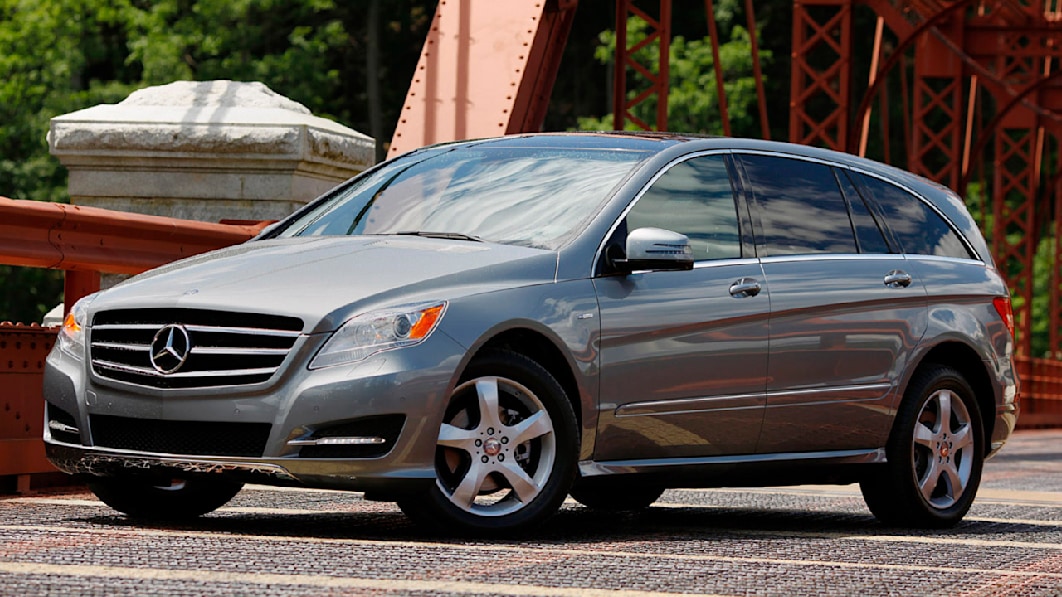Mercedes issues urgent recall of 290k SUVs for brake issue

Mercedes-Benz says the owners of nearly 300,000 of its SUVs should park them until further notice due to a potential problem that can result in loss of braking power. NHTSA has issued a “do not drive” notice for the 2006-2012 ML-Class, GL-Class and R-Class vehicles until their brake boosters can be inspected.
According to Mercedes, these SUVs shipped with brake boosters that may become corroded after prolonged exposure to moisture. If corrosion occurs, the structure of internal components of the brake booster can crack, allowing air into the baking system and reducing braking effectiveness. If enough physical stress is placed on the booster hardware, it can experience a catastrophic failure that will lead to a complete loss of braking power.
“In rare cases of very severe corrosion, it might be possible that a strong or hard braking application may cause mechanical damage in the brake booster, whereby the connection between the brake pedal and brake system may fail,” Mercedes said in its notice. “In such a very rare case, it would not be possible to decelerate the vehicle via the brake pedal. Thus, the risk of a crash or injury would be increased. The function of the foot-activated parking brake is not affected by this issue.”
Mercedes says early signs of failure include a soft brake pedal or audible signs of air in the braking system (sucking, hissing or wheezing noises from the pedal are potential indicators of contaminated brake fluid). Mercedes says drivers should park these vehicles until they can be inspected by an authorized dealership.
“An authorized Mercedes-Benz dealer will remove the rubber sleeve and inspect the brake booster housing on the affected vehicles,” Mercedes said. “Vehicles that do not exhibit advanced corrosion may continue to be driven with no further action. Vehicles that show advanced corrosion will have an additional test performed to ensure the functionality of the brake booster. Vehicles that pass the additional test may be driven for up to two years but must return for an additional repair.”
“Vehicles that do not pass the additional test will require a brake booster replacement. The stop-drive notice will remain in effect for these vehicles until the brake booster is replaced. In the event a repair is necessary and cannot be carried out immediately, an authorized Mercedes-Benz dealer will help coordinate an individual solution for the customer, including alternate mobility.”
Mercedes has begun circulating notices to owners as of May 12.
Related Video:



